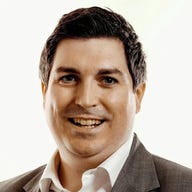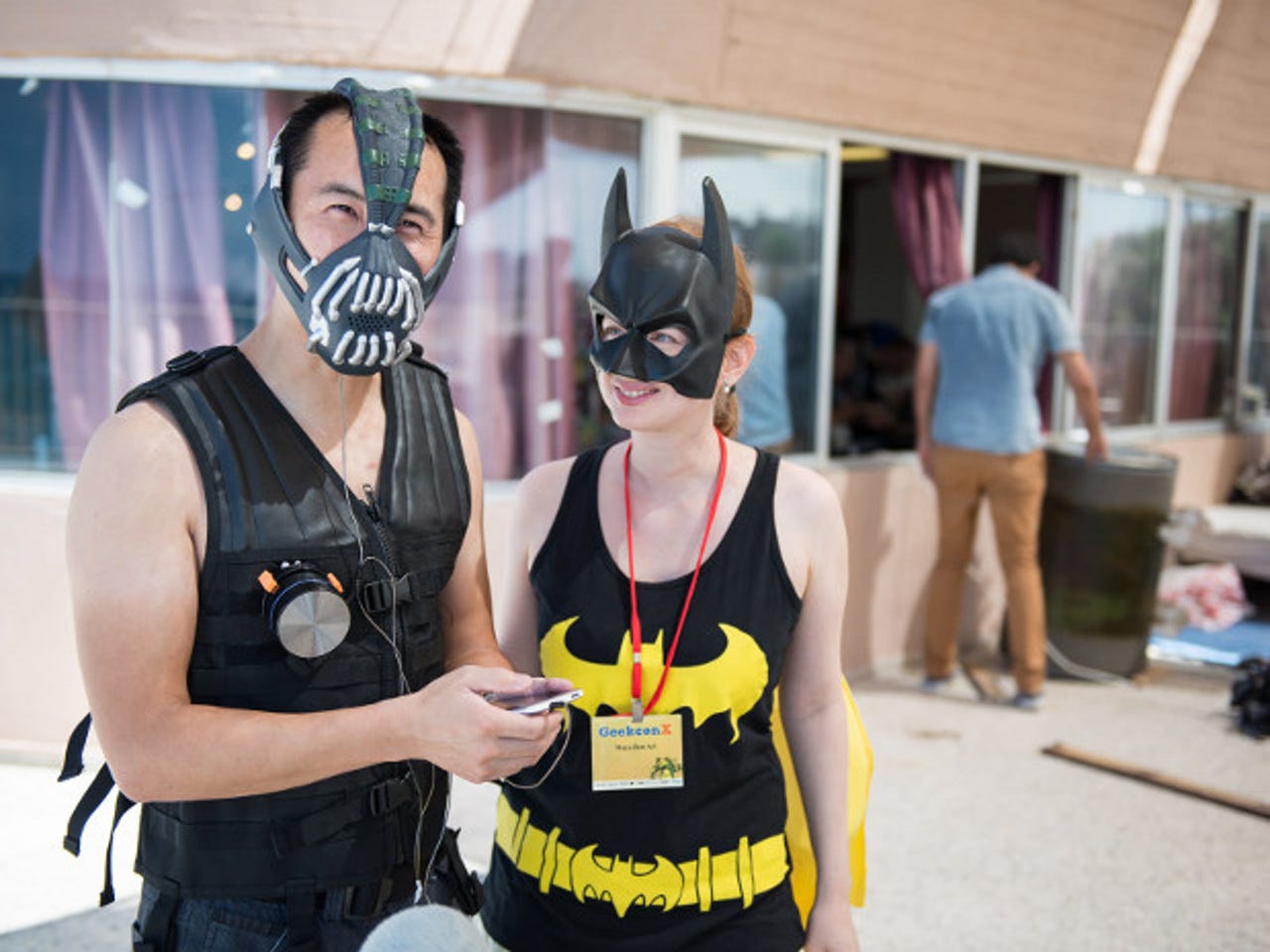Only useless projects allowed: Inside Geekcon, the summer camp that celebrates pointless tech


Two hundred members of Israel’s hi-tech industry came together at the end of September to participate in the tenth Geekcon; an annual maker event which sees attendees combine software, robotics, neuroscience, mechanical and web based technologies to build so-called "useless projects".
Innovations originating from this year's event included a hummus 3D printer, Human Pac-Man, in which players steer the online Pac-Man game through head motion; and the Bane Mask Translator, which translates English to Hebrew — and Hebrew to English — in the distinctive accent of Tom Hardy’s Bane character from the Batman movie The Dark Knight Rises.
The self-styled summer camp for geeks encourages participants to work across disciplines over a 52-hour period to build inventive creations from scratch. As Gilli Cegla — a serial entrepreneur and one of the organisers of the event - told ZDNet, the format is a deliberate counterpoint "to events where people only talk".
The brainchild of Israeli software specialist Ilan Graicer, Geekcon was also inspired by events such as Burning Man and the annual hacking event Foo Camp, alongside a desire "to create an un-conference for talented people and makers who actually build stuff during the event", Cegla said.
Numbers for this invitation only event are limited (their website states a clear "no project, no entry" policy) and attendees, Cegla notes, "are typically top geeks, entrepreneurs, makers, coders, scientists and designers [who] participate for the unique experience and opportunity to build things and engage together with like-minded people and work on ideas they had".
Corporate sponsors for the event over the years have included well-known tech companies such as AT&T Foundry, Microsoft, Yandex, Yahoo!, Autodesk, Google and Wix.
Corporate sponsors "enriching their own teams [and] getting exposure to a unique and talented group of people," Cegla told us, as well as "finding new talent and often learning if and what can be done with the technologies and products they [are] working on".
Over the years sponsors have also shared prototypes with teams, alongsideproviding them with other state of the art equipment and funding, although typically attendees need to bring their own tools and equipment, with the organizers focused on providing electricity, online connectivity "and lots of beer".
The joy of useless
With a deliberate emphasis on fun and creativity — including a User Generated Dinner (UGD) on the Friday night in which each participant "brings the geekiest ingredients and dish" as part of a "celebratory and messy dinner" — no products from these events have yet to come to market.
But, as Cegla told ZDNet, that's partly the point."Geekcon deliberately allows useless projects only," he said. A move "which, from our experience, maximizes the creativity of projects," he added.
Nonetheless, "the event has enabled a number of participants to find jobs - with sponsors and with each other," Cegla said, and "several startup teams were born at Geekcon, which later led to the creation of successful startups." One such example highlighted by Cegla is Face.com; which was acquired by Facebook in mid-2012.
Branching out
Meanwhile, the success of the Geekcon format in Israel has since been adapted by corporates and government ministries within Israel and also seen the creation of a TentTech, an invitation-only event taking place in the desert and focused on multi-disciplinary projects which use technology to "rethink sustainability in four domains: water, energy, shelter and communication." Launched in 2012, TentTech includes many of the same elements as Geekcon, including the UGD and participation by virtue of having "a project or a discussion or an activity" which they can share with other attendees.
Alongside this, a series of one day Geekcon like events for children and their parents — Geekcon Kids — started last year, with further ideas and spin-offs in the pipeline.
For Cegla these different types of activities can all play a role in supporting the growth of Israel’s success tech ecosystem, by acting as "a catalyst for promoting creative, blue sky thinking and experimental deployment of state of the art technologies."
"I believe that the current challenges are scaling, sustainability of the eco system and education of the next generations," he said, noting that "Cyber Security, eHealth, IoT, Big Data, green/environment and 3D," are the areas to watch in Israel.
It will be interesting to see how Geekcon and its sister events tackle these big issues in the coming years. But in the meantime, I’m off to take on some bugs with my new Cockroach Killerbot...